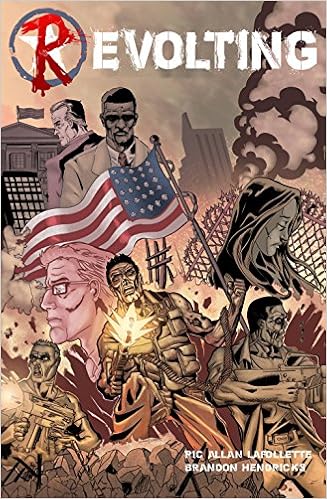AngmarsKing701
Member
From First Strike (RIP): The purpose of this thread is for writers to help writers, so keep it positive. Jackassery won't be tolerated.
Truer words have never been written. Pour one out for our fallen lord.
============================================
FirstStrike had lots of good advice, which I've copied here:
So, how do you start out?
Self-Publishing
1. Write the damn book. This sounds asinine, I know, but many writers never actually finish their book. If you want to self-publish you'll need to force yourself to sit down and actually write it.
2.Okay, so you finished the book. Fuck yeah! Now what? You have several options at this point.
-- Jump straight into edits. Go back over the entire novel and fix up grammar/spelling errors, plot holes, and general inconsistencies in your writing.
-- Join a website, such as http://critiquecircle.com and submit your work for critiquing. This will get you valuable feedback from other, more experienced writers, which can help you advance as a writer. It's also free.
-- Invest several thousand dollars into an professional editor who will do most everything for you.
3. Editing is done, woohoo! Time to pub-- not quite. Now, it's time to get some beta readers. The point behind this is to release your book to a small, concentrated group of readers that are a fan of your genre. There's tons of them on the internet, but you can easily find them in places like http://librarything.com or http://goodreads.com. These readers will then give you feedback on the novel and if you're satisfied with the results, you can consider the manuscript finished. This means that you need to stop editing it. No, really. Stop editing. Some people can't ever get past the editing phase. If the results are unsatisfactory, then of course, you would go back to the drawing board.
4. Marketing. Yes, you want to start this before the book comes out. Contact bloggers to arrange blog tours, reviews, interviews, etc. You're going to want to get hype out on sites, prepare a press release and distribute it using a free or paid service like http://prweb.com or http://send2press.com. The more hype you generate before the book comes out, the greater your sales will be.
5. Now, if you're up to this point - the manuscript is done. Congratulations, you've passed a milestone that many writers never achieve. So, now it's time to get your cover ready. This is one of the most important parts of the book. If your cover looks like shit, everyone will assume your book is shit too. If you have the skills to do a cover yourself you'll be able to save a lot of money; if not, then prepare to fork out some cash for a professional artist. http://h3.abload.de/img/roncover_smallt9dv2.jpg, for example, cost me $500.00. That may be a bit steep for some of you, though. There are artists that will do it for cheaper, but the quality and talent tends to vary greatly. I recommend going to sites like http://deviantart.com in order to find an artist that matches your style and budget.
6. Once the cover is done you'll need a catchy blurb that will appear on the back cover (if doing paperback) or on the sites that you plan on listing the novel in ebook format. This, for many authors, is one of the hardest parts of writing; they need to somehow compose a 200 - 400 word blurb about their book that makes it sound exciting and unique from other books in their genre. It can take a lot of tweaking to get this right, so I recommend you head back to sites like http://critiquecircle.com to get some help and feedback on this.
7. The manuscript is complete, the book cover is done, and you have the blurb just the way you want it. Rock on. It's time to put it all together at the site of your choice. There are many options available, but I'll list a few here. I recommend researching each to see the costs/benefits and which will suit you best.
http://lulu.com
http://createspace.com
https://kdp.amazon.com/self-publishing/signin" target="_blank
http://bn.com/pubit" target="_blank
http://www.smashwords.com
http://draft2digital.com from Elfforkusu: So... for those of you who don't know about d2d, it's basically exactly like SmashWords, but in an alternate universe where SmashWords didn't suck.
I'm only listing the most popular ones here which have no real upfront costs and will get your book(s) out to the widest audience. 95%, or more, of your sales will be on Amazon. For paperback, you'll need to buy a proof copy, but otherwise there's no cost you at all from either Lulu or CreateSpace.
8. Pricing your novel is now the last part you need to worry about. If you're listing it in ebook format, the pricing should depend on the length. However, you do need to take into consideration the fact that you're likely an unknown author that nobody has ever heard of. I listed my book at an initial price point of $0.99, for example, and then raised it up to $2.99 (it's still selling at that) and this is a 114,000 word novel. A lot of people frown on $0.99 novels, as they have a certain stigma of being terribly written books filled with grammar and spelling errors, up to the point of being unreadable. So, take that into consideration.
9. The book is listed and you're now ready for people to start buying it. Now what? Well, if you did the marketing that I recommended earlier they should already be homing in on it and buying it. If not, then you're going to want to go into marketing overload and get as many bloggers and reviewers on board. Also, if you can somehow get onto a radio show do that; radio sells books more than anything else for some reason. Make use of social media, such as twitter, facebook, etc. You want to gain followers.
Important: Some authors go around to various communities and spam their books. This will not sell your books. You're much better off mingling with the people in the community and getting to know them. Odds are they'll take an interest in you and your book(s) naturally.
Try not to hover over the refresh button that tracks your sales. You might not even get any in the first week. There are people that sell just a few copies of their novel after it's been released; don't be surprised if this happens to you. Some people get addicted to this and depressed when they're not suddenly selling thousands of copies of their books. Remember, you're a drop in the bucket in the book world. You need to build a name for yourself. How do you do that? Keep writing and releasing books. The more books you have out, the more likely someone will find and read them. If they like what they read then they'll probably buy your other books too. So, keep that in mind.
This is a process that never really ends. You need to keep writing and marketing. Publishing agencies have entire teams that do the above, yet as a self-published writer you're basically electing to do all of this yourself. It's a lot of work, but it can greatly pay off in the end if you dedicate yourself to it and, of course, are a good author.
So, let's say you want to go the traditional route. Here's what you can expect.
<b>Traditional Publishing</b>
1. Write the damn book. Seriously, this step never changes.
2. Edit the book extensively. You want the book in a completed state before you ever query an agent or editor. Send them your best work; this is your first, and possibly, only impression you'll get to make.
3. Research, research, research. Find agents/editors that specialize in the genre you are writing in and make sure you're adhering to the guidelines laid out on their site by your query. Compile a list of contacts and make sure it's accurate. Do not call a Mr a Mrs, or spell their name wrong. They hate that. For some examples of how bad writers fuck up, check out http://slushpilehell.tumblr.com/. The shit you're reading on there is from actual queries.
4. Got your list? Good. Write your query. This, much like the blurb, needs to be written in a way that will make the reader want to actually open your book. You're selling your book here. The whole thing is generally about as long, 200 - 500 words, but it's the first sentence that's most important. Draw your reader in with something that sets your book apart from the slush; and then have the query critiqued before you send it out. You want this to be perfect.
5. Querying agents/editors is a time consuming process. You want to tailor each query towards that specific agent/editor. I'm not going to tell you how to do this as there is literally thousands of articles available at your fingertips with a simple google search that will tell you exactly how to write a query letter. Adding just a touch of personalization goes a long way with them. I advise you to do about 25 at a time to gauge the response to your query. If you get no requests for even a partial of your manuscript then you may want to tweak the query and try the next batch.
6. Rejection. It's going to happen. You might even pass 100 rejections and be no further than you were previously. Remember, the people you're querying have to think that they can make money off your book. If they don't think it'll sell then no matter how good the book is, you probably will end up with a rejection letter (or in some cases no response at all).
7. The waiting game. When waiting for agents/editors to respond don't constantly email them. If they have a specific period on their website, which most do, that states when it's OK to check on the status of your query then wait until that time has come lest you invoke their fury. Don't call them at their office, follow them home, or drug their cupcakes. It's not going to get your book published. Some people wait up to a year, or in some rare cases, even longer for a response.
8. Okay, so 2 years of your life have passed by and you finally get an offer from an agent. Time to fucking celebrate. But, wait - your book still hasn't actually sold. It's now up to the agent to find a publisher that will buy your book and cut you a fat royalty check. Sometimes they fail, and then you end up starting the process over. If that's the case, return to step #5. Or, step #2 in case you feel that you need to further improve the book to get it to sell.
What if you don't make it? What if you can't get an agent/publisher? Well, your only other option is to self-publish, or become an Indie author as we're called now. There used to be a stigma over self-publishing, that it was just a dumping ground for crappy books. This is no longer the case; in fact, it's become much more respected thanks to authors stepping up to the plate and improving their game. There's many fantastic Indie books out there, and some authors have had great success with their novels and are sitting on fat royalty checks with all the middlemen cut out. This is, of course, not the norm. But, it can certainly happen.
Editing: A professional editor can take you a long way. Here's a list of some respectable editors that I recommend (for those who have the budget).
http://victoryediting.com/
http://redadeptpublishing.com/editing-services/
http://penandpress.com/home.php
http://www.documentdriven.com/
http://www.tristipinkston.com/p/author-services.html
=================================
The published authors of GAF. This list is likely incomplete, so if you're published please let me know and I'll add you here. We are basically all proof that it can be done.
aidan (Hugo Award Winning Author & Editor)
A Dribble of Ink
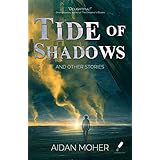
cosmicblizzard
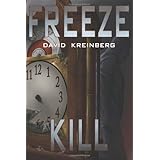 and
and 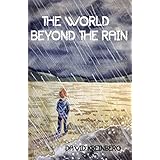
Elfforkusu

Fidelis Hodie
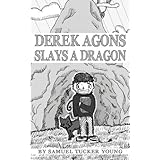
H.Protagonist
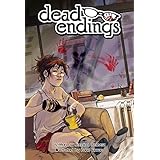
whatevermort
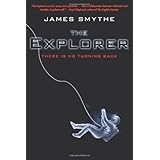 and several others. See his full list here.
and several others. See his full list here.
plasticine
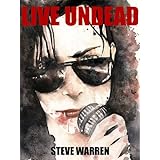
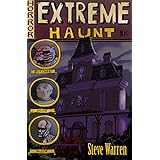
toddhunter
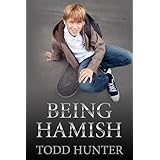
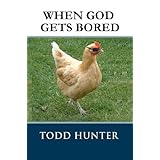
xandaca
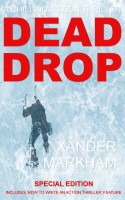
super-heated plasma
Hop

UCBooties published first story (Irreconcilable Divergence under the name Michael T Wells) in the following anthology:

Soulfire's Author Dashboard
HK Lune is the NeoGAF user who has contributed to:
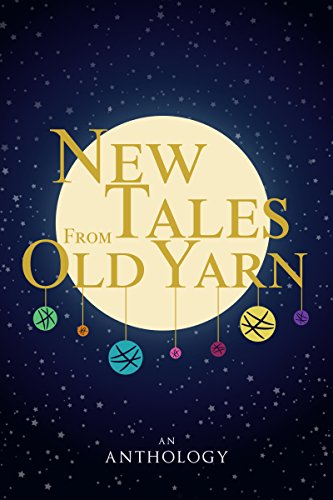
Also available from these locations
AngmarsKing701 (me)
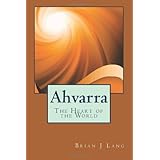
The Knight's Journal I
The Knight's Journal II
the 1st six books of the 2017 Novella Writing Challenge
For those who are published or looking to get published, one of the key tasks is marketing, and H.Pro provides some sites and I've added a bit of info:
Sites
Awesomegang - They've been really cool for a free site. They also have an inexpensive ad campaign where for $10 they run your book on their site and tweet links to your book.
Goodreads - definitely a must have these days. One of the central places readers go for discussion about the books they're interested in reading.
What Are You Reading GAF thread (this changes monthly) - Maklershed was kind enough to add all GAF works to the OP
Pretty-Hot - Another free sight. Got a few tweets from them.
Amazon Author Central - Just a profile that links up with the book listing, but putting a face to writing helps.
Personal
Facebook - The place where family and friends cannot escape their duty.
Twitter - Probably one of the best vehicles for getting the word out.
Tips & Tricks to getting started
The snowflake method of character creation (thanks, show me your skeleton):
Funny how much you 'learn' about your characters just by thinking about them for more than ten seconds and filling in the old snowflake method sheet of:
description
short summary
motivation
goal
conflict
epiphany
long summary
Finally, for those looking for a highly recommended podcast, try out writing excuses. Cyan has been recommending this for years! And fredrancour provided a summary of it here.
Another view of how to cut through the fear and get your novel written. Full blog here.

Truer words have never been written. Pour one out for our fallen lord.
============================================
FirstStrike had lots of good advice, which I've copied here:
So, how do you start out?
Self-Publishing
1. Write the damn book. This sounds asinine, I know, but many writers never actually finish their book. If you want to self-publish you'll need to force yourself to sit down and actually write it.
2.Okay, so you finished the book. Fuck yeah! Now what? You have several options at this point.
-- Jump straight into edits. Go back over the entire novel and fix up grammar/spelling errors, plot holes, and general inconsistencies in your writing.
-- Join a website, such as http://critiquecircle.com and submit your work for critiquing. This will get you valuable feedback from other, more experienced writers, which can help you advance as a writer. It's also free.
-- Invest several thousand dollars into an professional editor who will do most everything for you.
3. Editing is done, woohoo! Time to pub-- not quite. Now, it's time to get some beta readers. The point behind this is to release your book to a small, concentrated group of readers that are a fan of your genre. There's tons of them on the internet, but you can easily find them in places like http://librarything.com or http://goodreads.com. These readers will then give you feedback on the novel and if you're satisfied with the results, you can consider the manuscript finished. This means that you need to stop editing it. No, really. Stop editing. Some people can't ever get past the editing phase. If the results are unsatisfactory, then of course, you would go back to the drawing board.
4. Marketing. Yes, you want to start this before the book comes out. Contact bloggers to arrange blog tours, reviews, interviews, etc. You're going to want to get hype out on sites, prepare a press release and distribute it using a free or paid service like http://prweb.com or http://send2press.com. The more hype you generate before the book comes out, the greater your sales will be.
5. Now, if you're up to this point - the manuscript is done. Congratulations, you've passed a milestone that many writers never achieve. So, now it's time to get your cover ready. This is one of the most important parts of the book. If your cover looks like shit, everyone will assume your book is shit too. If you have the skills to do a cover yourself you'll be able to save a lot of money; if not, then prepare to fork out some cash for a professional artist. http://h3.abload.de/img/roncover_smallt9dv2.jpg, for example, cost me $500.00. That may be a bit steep for some of you, though. There are artists that will do it for cheaper, but the quality and talent tends to vary greatly. I recommend going to sites like http://deviantart.com in order to find an artist that matches your style and budget.
6. Once the cover is done you'll need a catchy blurb that will appear on the back cover (if doing paperback) or on the sites that you plan on listing the novel in ebook format. This, for many authors, is one of the hardest parts of writing; they need to somehow compose a 200 - 400 word blurb about their book that makes it sound exciting and unique from other books in their genre. It can take a lot of tweaking to get this right, so I recommend you head back to sites like http://critiquecircle.com to get some help and feedback on this.
7. The manuscript is complete, the book cover is done, and you have the blurb just the way you want it. Rock on. It's time to put it all together at the site of your choice. There are many options available, but I'll list a few here. I recommend researching each to see the costs/benefits and which will suit you best.
http://lulu.com
http://createspace.com
https://kdp.amazon.com/self-publishing/signin" target="_blank
http://bn.com/pubit" target="_blank
http://www.smashwords.com
http://draft2digital.com from Elfforkusu: So... for those of you who don't know about d2d, it's basically exactly like SmashWords, but in an alternate universe where SmashWords didn't suck.
I'm only listing the most popular ones here which have no real upfront costs and will get your book(s) out to the widest audience. 95%, or more, of your sales will be on Amazon. For paperback, you'll need to buy a proof copy, but otherwise there's no cost you at all from either Lulu or CreateSpace.
8. Pricing your novel is now the last part you need to worry about. If you're listing it in ebook format, the pricing should depend on the length. However, you do need to take into consideration the fact that you're likely an unknown author that nobody has ever heard of. I listed my book at an initial price point of $0.99, for example, and then raised it up to $2.99 (it's still selling at that) and this is a 114,000 word novel. A lot of people frown on $0.99 novels, as they have a certain stigma of being terribly written books filled with grammar and spelling errors, up to the point of being unreadable. So, take that into consideration.
9. The book is listed and you're now ready for people to start buying it. Now what? Well, if you did the marketing that I recommended earlier they should already be homing in on it and buying it. If not, then you're going to want to go into marketing overload and get as many bloggers and reviewers on board. Also, if you can somehow get onto a radio show do that; radio sells books more than anything else for some reason. Make use of social media, such as twitter, facebook, etc. You want to gain followers.
Important: Some authors go around to various communities and spam their books. This will not sell your books. You're much better off mingling with the people in the community and getting to know them. Odds are they'll take an interest in you and your book(s) naturally.
Try not to hover over the refresh button that tracks your sales. You might not even get any in the first week. There are people that sell just a few copies of their novel after it's been released; don't be surprised if this happens to you. Some people get addicted to this and depressed when they're not suddenly selling thousands of copies of their books. Remember, you're a drop in the bucket in the book world. You need to build a name for yourself. How do you do that? Keep writing and releasing books. The more books you have out, the more likely someone will find and read them. If they like what they read then they'll probably buy your other books too. So, keep that in mind.
This is a process that never really ends. You need to keep writing and marketing. Publishing agencies have entire teams that do the above, yet as a self-published writer you're basically electing to do all of this yourself. It's a lot of work, but it can greatly pay off in the end if you dedicate yourself to it and, of course, are a good author.
So, let's say you want to go the traditional route. Here's what you can expect.
<b>Traditional Publishing</b>
1. Write the damn book. Seriously, this step never changes.
2. Edit the book extensively. You want the book in a completed state before you ever query an agent or editor. Send them your best work; this is your first, and possibly, only impression you'll get to make.
3. Research, research, research. Find agents/editors that specialize in the genre you are writing in and make sure you're adhering to the guidelines laid out on their site by your query. Compile a list of contacts and make sure it's accurate. Do not call a Mr a Mrs, or spell their name wrong. They hate that. For some examples of how bad writers fuck up, check out http://slushpilehell.tumblr.com/. The shit you're reading on there is from actual queries.
4. Got your list? Good. Write your query. This, much like the blurb, needs to be written in a way that will make the reader want to actually open your book. You're selling your book here. The whole thing is generally about as long, 200 - 500 words, but it's the first sentence that's most important. Draw your reader in with something that sets your book apart from the slush; and then have the query critiqued before you send it out. You want this to be perfect.
5. Querying agents/editors is a time consuming process. You want to tailor each query towards that specific agent/editor. I'm not going to tell you how to do this as there is literally thousands of articles available at your fingertips with a simple google search that will tell you exactly how to write a query letter. Adding just a touch of personalization goes a long way with them. I advise you to do about 25 at a time to gauge the response to your query. If you get no requests for even a partial of your manuscript then you may want to tweak the query and try the next batch.
6. Rejection. It's going to happen. You might even pass 100 rejections and be no further than you were previously. Remember, the people you're querying have to think that they can make money off your book. If they don't think it'll sell then no matter how good the book is, you probably will end up with a rejection letter (or in some cases no response at all).
7. The waiting game. When waiting for agents/editors to respond don't constantly email them. If they have a specific period on their website, which most do, that states when it's OK to check on the status of your query then wait until that time has come lest you invoke their fury. Don't call them at their office, follow them home, or drug their cupcakes. It's not going to get your book published. Some people wait up to a year, or in some rare cases, even longer for a response.
8. Okay, so 2 years of your life have passed by and you finally get an offer from an agent. Time to fucking celebrate. But, wait - your book still hasn't actually sold. It's now up to the agent to find a publisher that will buy your book and cut you a fat royalty check. Sometimes they fail, and then you end up starting the process over. If that's the case, return to step #5. Or, step #2 in case you feel that you need to further improve the book to get it to sell.
What if you don't make it? What if you can't get an agent/publisher? Well, your only other option is to self-publish, or become an Indie author as we're called now. There used to be a stigma over self-publishing, that it was just a dumping ground for crappy books. This is no longer the case; in fact, it's become much more respected thanks to authors stepping up to the plate and improving their game. There's many fantastic Indie books out there, and some authors have had great success with their novels and are sitting on fat royalty checks with all the middlemen cut out. This is, of course, not the norm. But, it can certainly happen.
Editing: A professional editor can take you a long way. Here's a list of some respectable editors that I recommend (for those who have the budget).
http://victoryediting.com/
http://redadeptpublishing.com/editing-services/
http://penandpress.com/home.php
http://www.documentdriven.com/
http://www.tristipinkston.com/p/author-services.html
=================================
The published authors of GAF. This list is likely incomplete, so if you're published please let me know and I'll add you here. We are basically all proof that it can be done.
aidan (Hugo Award Winning Author & Editor)
A Dribble of Ink

cosmicblizzard
 and
and 
Elfforkusu

Fidelis Hodie

H.Protagonist

whatevermort
 and several others. See his full list here.
and several others. See his full list here.plasticine


toddhunter


xandaca

super-heated plasma
Hop

UCBooties published first story (Irreconcilable Divergence under the name Michael T Wells) in the following anthology:

Soulfire's Author Dashboard
HK Lune is the NeoGAF user who has contributed to:

Also available from these locations
AngmarsKing701 (me)

The Knight's Journal I
The Knight's Journal II
the 1st six books of the 2017 Novella Writing Challenge
For those who are published or looking to get published, one of the key tasks is marketing, and H.Pro provides some sites and I've added a bit of info:
Sites
Awesomegang - They've been really cool for a free site. They also have an inexpensive ad campaign where for $10 they run your book on their site and tweet links to your book.
Goodreads - definitely a must have these days. One of the central places readers go for discussion about the books they're interested in reading.
What Are You Reading GAF thread (this changes monthly) - Maklershed was kind enough to add all GAF works to the OP
Pretty-Hot - Another free sight. Got a few tweets from them.
Amazon Author Central - Just a profile that links up with the book listing, but putting a face to writing helps.
Personal
Facebook - The place where family and friends cannot escape their duty.
Twitter - Probably one of the best vehicles for getting the word out.
Tips & Tricks to getting started
The snowflake method of character creation (thanks, show me your skeleton):
Funny how much you 'learn' about your characters just by thinking about them for more than ten seconds and filling in the old snowflake method sheet of:
description
short summary
motivation
goal
conflict
epiphany
long summary
Finally, for those looking for a highly recommended podcast, try out writing excuses. Cyan has been recommending this for years! And fredrancour provided a summary of it here.
Another view of how to cut through the fear and get your novel written. Full blog here.


